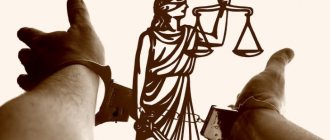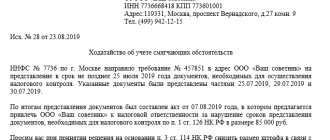1. Illegal hunting, if this act is committed:
a) causing major damage;
b) using a mechanical vehicle or aircraft, explosives, gases or other methods of mass destruction of birds and animals;
c) in relation to birds and animals, hunting of which is completely prohibited;
d) in a specially protected natural area or in a zone of environmental disaster or in a zone of environmental emergency, -
shall be punishable by a fine in the amount of up to five hundred thousand rubles, or in the amount of the wages or other income of the convicted person for a period of up to two years, or by correctional labor for a term of up to two years, or by imprisonment for a term of up to two years.
2. The same act, committed by a person using his official position, or by a group of persons by prior conspiracy or by an organized group, or which caused especially large damage, -
shall be punishable by a fine in the amount of five hundred thousand to one million rubles, or in the amount of the wages or other income of the convicted person for a period of three to five years, or by imprisonment for a term of three to five years, with deprivation of the right to hold certain positions or engage in certain activities for a term of up to three years or without it.
Note. In this article, large damage is recognized as damage calculated according to the rates and methodology approved by the Government of the Russian Federation, exceeding forty thousand rubles, especially large - one hundred twenty thousand rubles.
- Article 257. Violation of rules for the protection of aquatic biological resources
- Article 258.1. Illegal extraction and trafficking of especially valuable wild animals and aquatic biological resources belonging to species listed in the Red Book of the Russian Federation and (or) protected by international treaties of the Russian Federation
Commentary to Art. 258 of the Criminal Code of the Russian Federation
The object of the crime is relations for the protection and rational use of wild animals. Federal Law No. 52-FZ of March 22, 1995 “On the Animal World” establishes that relations in the field of hunting and game management are regulated by this Federal Law and other federal laws adopted in accordance with it, other regulatory legal acts of the Russian Federation, as well as laws and other regulatory legal acts of the constituent entities of the Russian Federation. These acts must be referenced when deciding on criminal liability in each specific case.
———————————
NW RF. 1995. N 17. Art. 1462.
Such acts, in addition to the Law “On Animal World”, primarily include: Federal Law of January 10, 2002 N 7-FZ “On Environmental Protection”, containing general provisions; LC RF (Articles 36, 37), Decree of the Government of the Russian Federation of July 26, 1993 N 728 “On amateur and sport hunting in the Russian Federation”; Order of the Ministry of Agriculture of Russia dated December 24, 1993 N 315 “On granting the right to hunt”; hunting rules contained in the legislation and other regulations of the constituent entities of the Russian Federation.
———————————
NW RF. 2002. N 2. Art. 133.
SAPP RF. 1993. N 31. Art. 2991.
Bulletin of normative acts of federal executive authorities. 1994. N 5; 1998. N 18; 1999. N 10.
The subject of the crime is wild animals and birds living in a state of natural freedom in hunting grounds, as well as those released for breeding purposes.
Taking possession of animals kept in cages, enclosures, fenced areas, zoos, circuses or in the possession of citizens is qualified as theft of someone else's property (clause 18 of the Resolution of the Plenum of the Supreme Court of the Russian Federation of November 5, 1998 No. 14 “On the practice of application by courts of legislation on responsibility for environmental violations”), and shooting or other killing of such animals and birds is considered the deliberate destruction of someone else’s property (see commentary to Articles 167, 168 of the Criminal Code of the Russian Federation).
———————————
Bulletin of the Supreme Court of the Russian Federation. 1999. N 1.
Hunting is the tracking for the purpose of production, pursuit and the production of wild animals and birds. Hunting in violation of established rules is considered illegal and entails criminal or administrative liability.
From the objective side, criminal illegal hunting in the sense of the article being commented on is constituted only by a violation of hunting rules if the actions of the perpetrator contain at least one of the elements specified in this article.
Signs of illegal hunting are hunting without proper permission or in prohibited places, or at prohibited times, or with prohibited tools and methods.
The right to hunt is regulated by Art. Art. 36 - 37 of the LC RF and the above-mentioned Order of the Ministry of Agriculture of Russia “On granting the right to hunt”.
Hunting in forest areas provided for hunting is carried out in accordance with the Federal Law “On Wildlife” and the LC RF. Forest areas for hunting are provided for use on the basis of lease agreements. At the same time, the rules for using forests for hunting are established by the legislation of the constituent entities of the Russian Federation (Article 36 of the LC RF). The use of forests for hunting is a type of entrepreneurial activity. Citizens can carry out amateur and sport hunting in forests in accordance with Art. 11 of the RF LC without providing forest areas for use (Article 37 of the RF LC) with the restrictions established by Art. 27 LC RF.
The right to hunt with firearms is enjoyed by all citizens of the Russian Federation who have reached the age of eighteen, who are members of a hunting society, who have passed the minimum hunting test, who have paid a fee for the use of wildlife in the form of a license fee, deductions from membership fees to hunter societies, etc.
Hunting without proper permission is recognized as: hunting without a hunting license or with an expired ticket; hunting by a person who does not have the right to hunt or who received a license without the necessary grounds; unlicensed hunting; hunting without an agreement with procurement and hunting business entities for the delivery of meat and furs. Hunting of an animal or bird in excess of the norm established in the hunting rules, contract or license, or of species other than those for which a permit has been issued, is also considered hunting without a permit.
The list of fauna objects classified as hunting objects, based on their numbers, status, traditions of use, types and quality of products obtained, is compiled by a specially authorized state body for the protection, control and regulation of the use of fauna objects in agreement with the executive authorities of the constituent entities of the Russian Federation and approved by the Government of the Russian Federation. The list of fauna objects classified as hunting objects was approved by Decree of the Government of the Russian Federation of December 26, 1995 N 1289 (as amended on July 30, 1998).
———————————
NW RF. 1996. N 2. Art. 120; N 49. Art. 5598; 1998. N 32. Art. 3904.
Animals, although listed in this List, are included in the Red Book of the Russian Federation and are not considered objects of hunting.
Other types of use of animals listed in the Red Book of the Russian Federation (for scientific purposes, for breeding, restoration of numbers, etc.) are regulated by Decree of the Government of the Russian Federation of January 6, 1997 N 13 “On approval of the rules for obtaining objects of the animal world belonging to species listed in the Red Book of the Russian Federation" (with latest amendments). Order of the State Committee for Ecology of Russia dated December 19, 1997 N 569 (as amended on September 9, 2004) approved Lists (lists) of fauna objects included in the Red Book of the Russian Federation and excluded from the Red Book of the Russian Federation.
———————————
NW RF. 1997. N 3. Art. 385; 2003. N 17. Art. 1621.
Bulletin of normative acts of federal executive authorities. 1998. N 5; 2000. N 8; 2004. N 40.
Places prohibited for hunting include the territories of nature reserves, nature reserves, green areas around cities and other populated areas, areas of industrial enterprises, transport routes, as well as other places prohibited by relevant acts. The list and boundaries of places prohibited for hunting, as well as hunting grounds, indicating their departmental affiliation, is given in the appendix to the hunting rules, approved separately for each subject of the Russian Federation.
Hunting during prohibited periods is hunting at a time when all hunting is prohibited, or during periods prohibited for the hunting of certain species of birds and animals.
Lists of prohibited tools and methods of hunting are set out in the Decree of the Government of the Russian Federation “On the rules, terms and lists of tools and methods of obtaining wildlife objects permitted for use,” as well as in the hunting rules. For example, shooting fires, using military and sporting weapons, using nets, hunting “from under headlights,” and hunting animals in distress are universally prohibited. Depending on local conditions, these lists may be slightly narrowed or expanded.
———————————
NW RF. 1996. N 31. Art. 3750.
Bulletin of normative acts of federal executive authorities. 1999. N 29.
When deciding whether the damage caused by illegal hunting is major, it is necessary to proceed from the explanations of the Resolution of the Plenum of the Supreme Court of the Russian Federation of November 5, 1998 No. 14 (see commentary to Article 256 of the Criminal Code of the Russian Federation). In particular, damage caused by illegal hunting of bison, elk, and deer should be recognized as major.
Illegal hunting that caused major damage is formulated by the legislator as a material element. To recognize the crime as completed in this case, real damage must be caused. If a person, while engaged in illegal hunting, due to circumstances beyond his control, was unable to achieve results, the act constitutes an attempt at illegal hunting on the basis of major damage.
The cost of animals when calculating damage is determined at special rates approved by the Government of the Russian Federation. The current rates are for calculating the amount of penalties for damage caused to legal entities and individuals by the illegal extraction or destruction of wildlife objects classified as hunting objects, approved by Order of the Ministry of Agriculture of Russia dated May 25, 1999 N 399. The rates provide for the amount of penalties calculated in the amount a multiple of the minimum wage at the time the crime was committed. If the damage is caused on the territory of a state reserve or wildlife sanctuary, then the multiplicity factors indicated in the rates must be doubled. For the destruction of muskrat and beaver burrows, damage is calculated at three times the amount per individual, which should be taken into account when determining major damage.
A mechanical vehicle should be understood as cars, motorcycles, boats, motor boats and other vehicles driven by an engine.
The term also applies to any tractors, electric, construction and other self-propelled vehicles specified in the Traffic Rules of the Russian Federation, approved by Decree of the Government of the Russian Federation of October 23, 1993 N 1090 with subsequent numerous amendments.
———————————
SAPP RF. 1993. N 47. Art. 4531; NW RF. 1996. N 3. Art. 184; 1998. N 45. Art. 5521; 2000. N 18. Art. 1985; 2001. N 11. Art. 1029; 2002. N 9. Art. 931; N 27. Art. 2693; 2003. N 20. Art. 1899; 2003. N 40. Art. 3891; 2005. N 12. Art. 5733; 2006. N 11. Art. 1179.
Aircraft include airplanes, helicopters and other aircraft.
The concepts of using vehicles, as well as methods of mass destruction of birds and animals are similar to those discussed in the commentary to Art. 256 of the Criminal Code of the Russian Federation.
A complete ban means a ban on all types of hunting (commercial, sport, amateur) for certain species of birds and animals at any time of the year due to their special value. A list of such rare and endangered animals is given in the hunting rules. It is also prohibited to hunt birds and animals listed in the Red Book of the Russian Federation.
On the procedure for issuing permits (administrative licenses) for the trade of wild animals belonging to species listed in the Red Book of the Russian Federation, see Decree of the Government of the Russian Federation of February 19, 1996 No. 156 (as amended on December 14, 2004).
———————————
NW RF. 1996. N 9. Art. 807; 2003. N 17. Art. 1621; 2004. N 51. Art. 5188.
The concept of a reserve, a wildlife sanctuary, zones of environmental disaster and zones of environmental emergency, see the commentary to Art. 247 and art. 262 of the Criminal Code of the Russian Federation.
A person’s use of his or her official position means the use of the rights and powers vested in a person by service or work to engage in illegal hunting, for example, by employees of hunting control bodies, heads of procurement organizations, hunting management bodies, and representatives of the executive branch administration.
Illegal hunting committed by a person using his official position, additional qualifications under Art. Art. 201, 285 of the Criminal Code of the Russian Federation does not require it, since the deed is covered by Part 2 of the commented article.
For the concept of a group of persons by prior conspiracy and an organized group, see the commentary to Art. 35 of the Criminal Code of the Russian Federation.
A crime (with the exception of illegal hunting that caused major damage) is considered completed from the moment the tracking or pursuit of birds and animals begins, regardless of whether they were caught (clause 17 of the Resolution of the Plenum of the Supreme Court of the Russian Federation of November 5, 1998 No. 14).
———————————
Bulletin of the Supreme Court of the Russian Federation. 1999. N 1.
From the subjective side, a crime is committed with direct intent. The person is aware of the public danger of illegal hunting and wants to do it. In the event of major damage, he wishes for this consequence to occur.
The general subject of the crime is a sane person who has reached the age of sixteen.
Basic Concepts
Hunting is the search, tracking, catching and killing of certain living creatures. This fishery is regulated by special rules, violating which a person will have to bear administrative liability, according to Code of Administrative Offenses Article 8.37. In situations where illegal hunting is involved, the offender already bears criminal liability.
Illegal hunting (IH) is hunting in prohibited territories and (or) using prohibited tools and methods (a concept enshrined in the UKRF).
BUT is an environmental crime, the object of which is the relationships formed regarding the protection and prudent use of wild animals, and the subject of the offense is animals living in the natural environment.
Judicial practice under Article 258 of the Criminal Code of the Russian Federation
Appeal ruling of the Judicial Collegium for Criminal Cases of the Supreme Court of the Russian Federation dated April 17, 2019 N 48-APU19-8
- July 26, 2021 by the Kartalinsky City Court of the Chelyabinsk Region under Part 2 of Art. 258 of the Criminal Code of the Russian Federation to a fine of 100,000 rubles, convicted: - under clause “b”, part 2 of art. 105 of the Criminal Code of the Russian Federation for 17 years of imprisonment with restriction of freedom for a period of 2 years;
Resolution of the Presidium of the Supreme Court of the Russian Federation dated September 18, 2019 N 84P19
convicted under Part 4 of Art. , part 2 art. 258 of the Criminal Code of the Russian Federation to a fine of 120,000 rubles. From the assigned punishment Shchukin G.K. released on the basis of clause 9 of the Resolution of the State Duma of the Federal Assembly of the Russian Federation of April 24, 2015 “On declaring an amnesty in connection with the 70th anniversary of Victory in the Great Patriotic War of 1941-1945.”
Cassation ruling of the Judicial Collegium for Criminal Cases of the Supreme Court of the Russian Federation dated November 23, 2017 N 1-O17-2
Thus, by now, at the time of consideration of the case in the cassation court and the entry into force of the verdict, the 6-year statute of limitations for bringing them to criminal liability under paragraphs “a”, “b” of Part 2 of Art. 158, and Pirogova M.A - and under “a”, “b”, part 2 of Art. 258 of the Criminal Code of the Russian Federation, in connection with which they are subject to exemption from the imposed punishment for these crimes.
Cassation ruling of the Judicial Collegium for Criminal Cases of the Supreme Court of the Russian Federation dated May 21, 2020 N 51-UD20-2-K8
convicted under paragraphs “a”, “b”, part 1 of Art. 258 of the Criminal Code of the Russian Federation to a fine of 100,000 rubles. The verdict also decides the fate of the material evidence. 700,000 rubles were recovered from the convict in compensation for material damage to the budget of the Charysh district of the Altai Territory.
Resolution of the Plenum of the Supreme Court of the Russian Federation dated October 31, 2017 N 41
"3. Persons who use their official position to commit crimes provided for in Part 3 of Article 256, Part 2 of Article 258 and paragraph “c” of Part 2 of Article 260 of the Criminal Code of the Russian Federation include officials who have the characteristics provided for in paragraph 1 of the notes to Article 285 of the Criminal Code of the Russian Federation, state or municipal employees who are not officials, as well as persons who meet the requirements provided for in paragraph 1 of the notes to Article 201 of the Criminal Code of the Russian Federation.
BUT according to UKRF
According to the Criminal Code of the Russian Federation, Art. 258, illegal hunting is actions committed:
- causing major damage;
- using mechanical transport or aircraft, explosives, gases or other methods of mass killing of birds and animals;
- in relation to animals and birds, hunting of which is completely prohibited;
- in a specially protected natural area (SPNA), at the site of an environmental disaster (OIE) or in an area of environmental emergency (ERES).
Article 258 of the Criminal Code of the Russian Federation refers to Section IX, offenses against the safety of society and public order, Chapter 26 “Environmental Crimes” of this code. The subject of the crime in question may be a sane person who has reached the age of 16.
Determination of damage
Major damage in illegal hunting is determined by internal affairs officers at the time of consideration of a specific criminal case. In this case, the amount of destroyed (damaged) or obtained, the prevalence of living creatures and their classification into special categories (for example, rare endangered species), as well as the ecological value, significance for a particular area and other circumstances of the crime committed are taken into account. At the same time, when determining damage, it is necessary to take into account the overall environmental damage caused.
In connection with the legislative initiative submitted to the State Duma, changes may soon be made to Article 258 (illegal hunting), major damage will be clearly defined and specified. The bill proposes a single amount of damage in the amount of 105 thousand rubles, at which criminal liability will arise. Damage will be calculated according to the current rates established in Government Decree No. 515 of May 25, 1994 and other similar legislative acts.
Prohibited hunting methods
Also, illegal hunting (Article 258 of the Criminal Code of the Russian Federation) is the mass killing of birds and animals, which means actions using prohibited tools and fishing methods that could lead or have led to the wholesale death of animals. For example, burning vegetation in animal habitats.
When deciding whether an action was committed by means of mass destruction of living creatures, the court must take into account not only the illegal type of weapon or methods of production, but also must determine whether their use can lead to the specified consequences. For these purposes, in some cases it is advisable to involve experts and specialists in probing the properties of such tools or mining methods.
Administrative liability for violating fishing rules
Destruction or damage to special signs
that define the boundaries of specially protected objects, protected areas of water bodies in accordance with the Code of Administrative Offenses, Article 7.2, Part 2, entails the imposition of an administrative fine:
- for citizens in the amount of 3,000 to 5,000 rubles,
- for officials from 5,000 to 10,000 rubles,
- for legal entities from 50,000 to 100,000 rubles.
Fishing without a permit when “permission” is required
, or in violation of the conditions provided for by the permit in accordance with the Administrative Code Article 7.11 part 1, entails the imposition of an administrative fine:
- for citizens in the amount of 500 to 1,000 rubles,
- for officials from 1,000 to 2,000 rubles,
- for legal entities from 10,000 to 20,000 rubles.
Violation of water use rules during fishing
according to the Code of Administrative Offenses, Article 8.14, Part 2, entails the imposition of an administrative fine:
- for citizens from 1,500 to 2,000 rubles,
- for officials from 3,000 to 4,000 rubles,
- for legal entities from 30,000 to 40,000 rubles.
Destruction of rare species of animals and plants
(from the Red Book), as well as for inaction that may lead to death, reduction in numbers or disruption of the habitat of these animals or to the death of such plants in accordance with the Code of Administrative Offenses, Article 8.35, entails the imposition of an administrative fine with confiscation of the means of obtaining animals or plants, as well as the animals or plants themselves, their products, parts or derivatives or without:
- for citizens in the amount of 2,500 to 5,000 rubles,
- for officials from 15,000 to 20,000 rubles,
- for legal entities from 500,000 to 1,000,000 rubles.
Violation of resettlement rules
, acclimatization or hybridization of objects of aquatic biological resources in accordance with the Code of Administrative Offenses, Article 8.36, entails a warning or the imposition of an administrative fine:
- for citizens in the amount of 1,000 to 1,500 rubles,
- for officials from 2,000 to 3,000 rubles,
- for legal entities from 20,000 to 30,000 rubles.
Violation of fishing rules
and other rules on the implementation of fishing in accordance with the Code of Administrative Offenses, Article 8.37, Part 2, entails the imposition of an administrative fine with or without confiscation of the vessel and other equipment for the extraction (catch) of aquatic biological resources:
- for citizens in the amount of 2,000 to 5,000 rubles,
- for officials from 20,000 to 30,000 rubles,
- for legal entities from 100,000 to 200,000 rubles.
Driving a small boat without a license
Code of Administrative Offenses Article 11.8.1 Control of a small vessel by a navigator who does not have with him a certificate for the right to operate a small vessel, a ship's ticket of a small vessel or a duly certified copy thereof, as well as documents confirming the right to own, use or dispose of the vessel he controls in the absence of the owner entails a warning or the imposition of an administrative fine: 100 rubles.
Transfer of control of a small boat to a person
who does not have a certificate for the right to operate a small boat, shall entail a warning or the imposition of an administrative fine: 100 rubles.
According to the Code of Administrative Offences, Article 11.7 Part 1, a small vessel should be understood as a vessel whose length should not exceed twenty meters and the total number of people on which should not exceed twelve.
Parking, driving a car near a reservoir and other illegal actions
within the water protection zone in accordance with Code of Administrative Offenses Article 8.13 (except for special vehicles) entails a fine, depending on the offense:
- for citizens in the amount of 500 to 5,000 rubles,
- for officials from 1,000 to 30,000 rubles,
- for legal entities from 10,000 to 300,000 rubles.
Territories where hunting is prohibited
The territories where hunting is prohibited by criminal law include:
- MEB is a territory where, due to any human activity, irreversible, dangerous changes in the natural environment have occurred, affecting human health, disturbing the natural balance, destroying natural ecosystems and entailing deformation of fauna and flora. In such areas, economic activities are stopped, with the exception of those related to serving the population living in this territory, reconstruction and construction of new economic facilities are prohibited, natural resources are urgently restored and reproduced, and environmental improvement is carried out.
- RFES are areas in which, as a result of some activity, persistent negative changes in the environment have occurred and are constantly occurring, posing a danger to people, to the natural ecological system and to the genetic resources of animals and plants.
- SPNA is a territory of land, water or air space on which natural complexes and objects are located that have special environmental, cultural, scientific, general aesthetic, health or restoration significance, as well as those withdrawn from economic use by state authorities and having an established special protection regime.
Protected natural areas include state-level nature reserves and sanctuaries, national and natural parks, and natural monuments.
Animals and birds, hunting of which is completely prohibited
Illegal hunting (Criminal Code of the Russian Federation) also involves the catching or production of animals, the fishing of which is completely prohibited. That is, at any time of the year, anywhere. For example, hunting for birds and animals that are listed in the International Red Book, the Red Book of Russia and the Red Books of the regions of the Russian Federation is prohibited.
The general rules for the protection of rare animals, plants and water resources are enshrined in Federal Law No. 7 of January 10, 2002, in Article 60. The regulations for maintaining the Red Book are contained in the Order of the State Committee for Ecology of the Russian Federation dated October 3. 1997 number 419-a.







